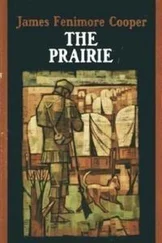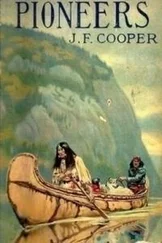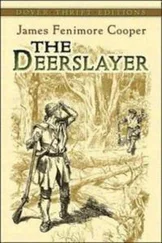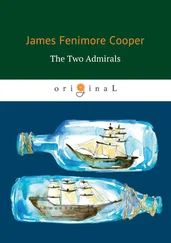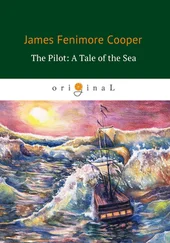Джеймс Купер - The Lake Gun
Здесь есть возможность читать онлайн «Джеймс Купер - The Lake Gun» — ознакомительный отрывок электронной книги совершенно бесплатно, а после прочтения отрывка купить полную версию. В некоторых случаях можно слушать аудио, скачать через торрент в формате fb2 и присутствует краткое содержание. Жанр: Прочие приключения, на английском языке. Описание произведения, (предисловие) а так же отзывы посетителей доступны на портале библиотеки ЛибКат.
- Название:The Lake Gun
- Автор:
- Жанр:
- Год:неизвестен
- ISBN:нет данных
- Рейтинг книги:5 / 5. Голосов: 1
-
Избранное:Добавить в избранное
- Отзывы:
-
Ваша оценка:
- 100
- 1
- 2
- 3
- 4
- 5
The Lake Gun: краткое содержание, описание и аннотация
Предлагаем к чтению аннотацию, описание, краткое содержание или предисловие (зависит от того, что написал сам автор книги «The Lake Gun»). Если вы не нашли необходимую информацию о книге — напишите в комментариях, мы постараемся отыскать её.
The Lake Gun — читать онлайн ознакомительный отрывок
Ниже представлен текст книги, разбитый по страницам. Система сохранения места последней прочитанной страницы, позволяет с удобством читать онлайн бесплатно книгу «The Lake Gun», без необходимости каждый раз заново искать на чём Вы остановились. Поставьте закладку, и сможете в любой момент перейти на страницу, на которой закончили чтение.
Интервал:
Закладка:
"Some folks pretend he's gone down," said Peter, in continuation of a discourse on the subject, as he flattened in the sheets of a very comfortable and rather spacious sailboat, on quitting the wharf of Geneva, "and will never come up ag'in. But they may just as well tell me that the sky is coming down, and that we may set about picking up the larks. That 'Jew' will no more sink than a well-corked bottle will sink."
{picking up the larks = "When the sky falls we shall catch larks" is an old proverb, meaning that an idea or suggestion is ridiculous}
This was the opinion of Peter. Fuller cared but little for it, though he still fancied he might make his companion useful in hunting up the object of his search. These two strangely-assorted companions cruised up and down the Seneca for a week, vainly endeavoring to find the
"Wandering Jew." Various were the accounts they gleaned from the different boatmen. One had heard he was to be met with off this point; another, in that bay: all believed he might be found, though no one had seen him lately-some said, in many years.
"He'll turn up," said Peter, positively, "or the Seneca would go down bows foremost. We shall light on the old chap when we least expect it."
It must be confessed that Peter had many sufficient reasons for entertaining these encouraging hopes. He was capitally fed, had very little more to do than to ease off, or flatten in a sheet, the boat being too large to be rowed; and cigars, and liquors of various sorts were pretty much at his command, for the obvious reason that they were under his care. In delivering his sentiments, however, Peter was reasonably honest, for he had the most implicit faith, not only in the existence of this "Jew," but in the beneficent influence of his visits.
His presence was universally deemed a sign of good luck.
Fuller passed most of the nights in a comfortable bed, leaving Peter in the boat; sometimes asking for lodgings in a farm-house, and, at others, obtaining them in an inn. Wherever he might be, he inquired about the "Wandering Jew" and the "Lake Gun," bent on solving these two difficult problems, if possible, and always with the same success. Most persons had seen the former, but not lately; while about one in ten had heard the latter. It occurred to our traveler that more of the last were to be found nearer to the northern than to the southern end of the lake.
The cruise continued a fortnight in this desultory manner, with the same want of success. One morning, as Fuller was returning to the boat, after passing the night in a farm-house, he was struck by the statue-like appearance of a figure which stood on the extreme point of a low, rocky promontory, that was considerably aside from any dwelling or building. The place was just at the commencement of the hill country, and where the shores of the Seneca cease to offer those smiling pictures of successful husbandry that so much abound farther north. A somber, or it might be better to say a sober, aspect gave dignity to the landscape, which, if not actually grand, had, at least, most of the elements that characterize the noble in nature.
But Fuller, at the moment, was less struck with the scenery, charming as that certainly was, than with the statue-like and immovable form on the little promontory. A single tree shaded the spot where the stranger stood, but it cast its shadows toward the west, at that early hour, leaving the erect and chiseled form in clear sun-light. Stimulated by curiosity, and hoping to learn something that might aid him in his search from one as curious as himself, Fuller turned aside, and, instead of descending to the spot where Peter had the boat ready for his reception, he crossed a pleasant meadow, in the direction of the tree.
Several times did our traveler stop to gaze on that immovable form. A feeling of superstition came over him when he saw that not the smallest motion, nor relief of limb or attitude, was made for the ten minutes that his eye had rested on the singular and strange object. At he drew nearer, however, the outlines became more and more distinct, and he fancied that the form was actually naked. Then the truth became apparent: it was a native of the forest, in his summer garb, who had thrown aside his blanket, and stood in his leggings, naked. Phidias could not have cut in stone a more faultless form; for active, healthful youth had given to it the free and noble air of manly but modest independence.
{Phidias = a very famous Greek sculptor of the 5th century B.C.}
"Sago," said Fuller, drawing near to the young Indian, who did not betray surprise or emotion of any sort, as the stranger's foot-fall came unexpectedly on his ear, using the salutation of convention, as it is so generally practiced between the two races. The Indian threw forward an arm with dignity, but maintained his erect and otherwise immovable attitude.
{Sago = a term of greeting, as Cooper believed, among American Indians}
"Oneida?" demanded Fuller, while he doubted if any young warrior of that half-subdued tribe could retain so completely the air and mien of the great forests and distant prairies.
"Seneca," was the simple answer. The word was uttered in a tone so low and melancholy that it sounded like saddened music. Nothing that Fuller had ever before heard conveyed so much meaning so simply, and in so few syllables. It illuminated the long vista of the past, and cast a gloomy shadow into that of the future, alluding to a people driven from their haunts, never to find another resting-place on earth. That this young warrior so meant to express himself-not in an abject attempt to extort sympathy, but in the noble simplicity of a heart depressed by the fall of his race-Fuller could not doubt; and every generous feeling of his soul was enlisted in behalf of this young Indian.
"Seneca," he repeated slowly, dropping his voice to something like the soft, deep tones of the other; "then you are in your own country, here?"
"My country," answered the red man, coldly, "no; my FATHER'S country, yes."
His English was good, denoting more than a common education, though it had a slightly foreign or peculiar accent. The intonations of his voice were decidedly those of the Indian.
"You have come to visit the land of your fathers?"
A slight wave of the hand was the reply. All this time the young Seneca kept his eye fastened in one direction, apparently regarding some object in the lake. Fuller could see nothing to attract this nearly riveted gaze, though curiosity induced him to make the effort.
"You admire this sheet of water, by the earnest manner in which you look upon it?" observed Fuller.
"See!" exclaimed the Indian, motioning toward a point near a mile distant. "He moves! may be he will come here."
"Moves! I see nothing but land, water, and sky. What moves?"
"The Swimming Seneca. For a thousand winters he is to swim in the waters of this lake. Such is the tradition of my people. Five hundred winters are gone by since he was thrown into the lake; five hundred more must come before he will sink. The curse of the Manitou is on him.
Fire will not burn him; water will not swallow him up; the fish will not go near him; even the accursed axe of the settler can not cut him into chips! There he floats, and must float, until his time is finished!"
{Swimming Seneca = though I have been unable to discover any genuine Native American origin for this legend, a detailed variation of it can be found in a poem, "Outalissa", by Rev. Ralph Hoyt, published in "Sketches by Rev. Hoyt, Vol. VIII" (New York. C. Shepard, n.d. [ca. 1848] (the Geneva College library copy of which is inscribed "DeLancey" and may have belonged to the family of Cooper's brother-in-law, Episcopal Bishop of Western New York William Heathcote De Lancey
(1797–1865), who lived in Geneva)-a somewhat different version forms the Geneva (Hobart) College student legend of Chief Agayentha or "The Floating Chief."}
Читать дальшеИнтервал:
Закладка:
Похожие книги на «The Lake Gun»
Представляем Вашему вниманию похожие книги на «The Lake Gun» списком для выбора. Мы отобрали схожую по названию и смыслу литературу в надежде предоставить читателям больше вариантов отыскать новые, интересные, ещё непрочитанные произведения.
Обсуждение, отзывы о книге «The Lake Gun» и просто собственные мнения читателей. Оставьте ваши комментарии, напишите, что Вы думаете о произведении, его смысле или главных героях. Укажите что конкретно понравилось, а что нет, и почему Вы так считаете.

![Джеймс Купер - Пионеры, или У истоков Саскуиханны [The Pioneers, or The sources of the Susquehannah]](/books/395797/dzhejms-kuper-pionery-ili-u-istokov-saskuihanny-t-thumb.webp)
![Джеймс Купер - Последний из могикан, или Повествование о 1757 годе [The Last Of The Mohicans]](/books/397341/dzhejms-kuper-poslednij-iz-mogikan-ili-povestvovan-thumb.webp)
![Джеймс Купер - Зверобой, или Первая тропа войны [The Deerslayer, or The First Warpath]](/books/398571/dzhejms-kuper-zveroboj-ili-pervaya-tropa-vojny-the-thumb.webp)
